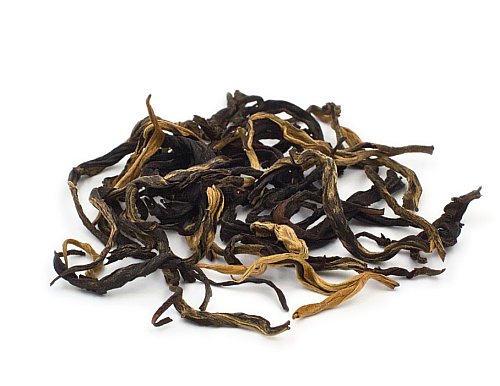2022 "Choc 'N' Roses" Black Tea
Black tea from trees with an average age of 300 years. It incorporates three curious aspects, where different technologies and terroir complement each other.
It is sun-dried but has been roasted in wok. It combines the chocolate and nutty notes of classic black tea with flowers and dried fruits of Shai Hongs. These markers are easy to read and create a bright, distinctive flavor profile.
And the third, terroir aspect is the wine melodies of raisin and sherry. These are the signature characteristics of aged black tea from Thai trees. They are still in their infancy here, but will develop with age if we can keep it (in stock) for a couple more years.
The material used is bold, high-grade: lots of beautiful, golden buds that create that very bright florality.
The tea brews instantly and richly, it is recommended for quick steeps. You don’t need a lot of leaves for a session–it has an excellent stamina, so I suggest taking ⅔ of the usual amount.
Aroma: noble garden flowers, chocolate, dried fruits, almonds, hazelnuts.
On the palate: dried fruits intertwine with chocolate, almond, hazelnut and floral notes, among which I would highlight rose and peony. The tea is soft and goes smoothly if brewed moderately strong.
The aftertaste is powerful, floral and vanilla, long and charming. Tones of dark chocolate and some rye bread appear in the finale, which refers us back to Dian Hong.
Cha Qi effect: the tea warms and fills with satiety, soothes and collects thoughts.
P.S.: On the one hand, this tea may seem familiar to our regular customers from the previously tested Thai blacks from trees. But it is worth taking a closer look. Its original, chocolate-floral character complimented by the wisdom and richness of old Thai trees earns this specimen its own place in our collection.
Tasting "Choc 'N' Roses" – Video Review
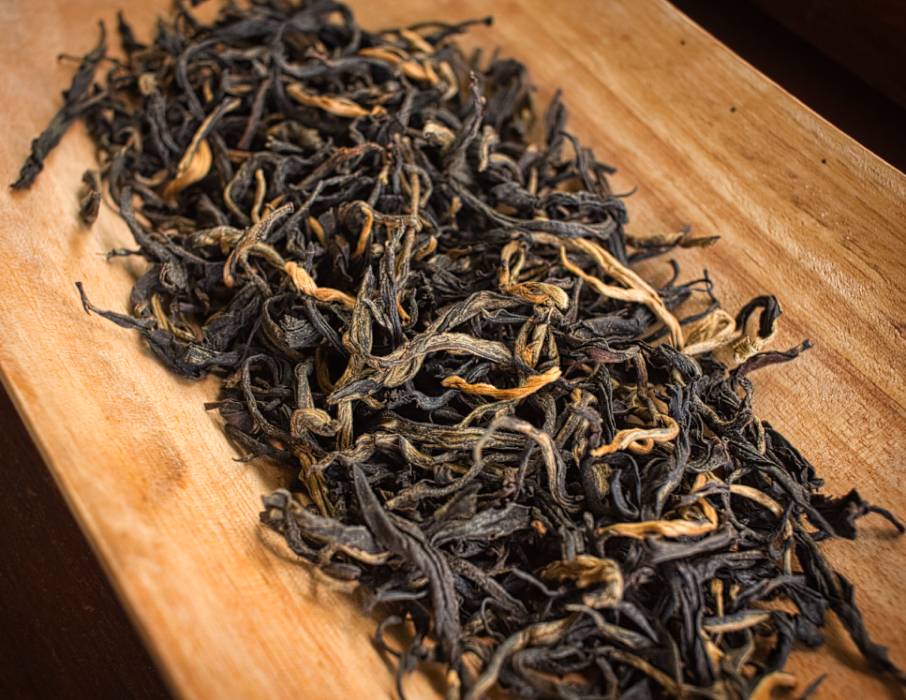
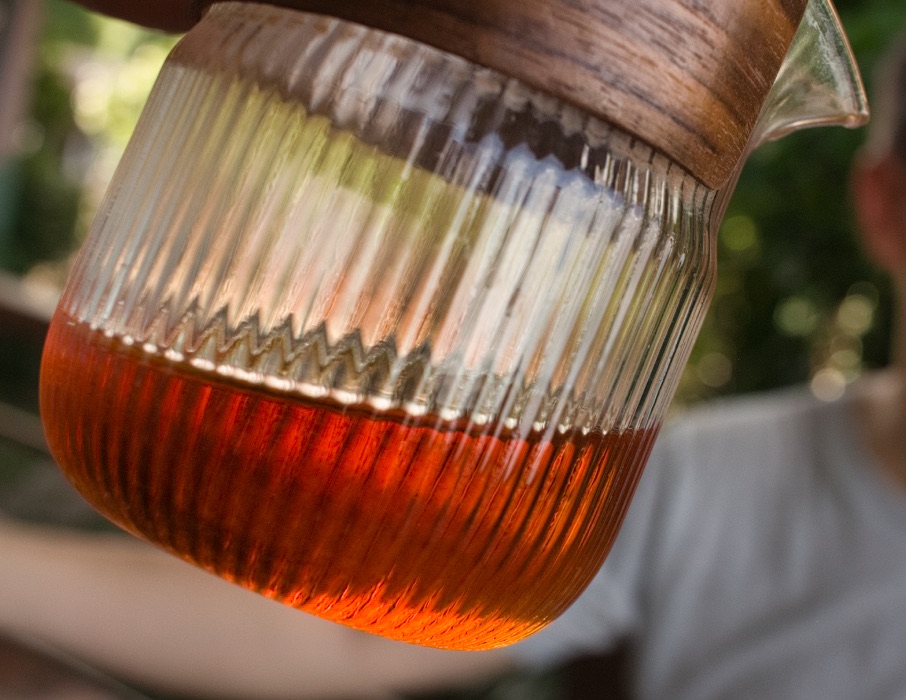
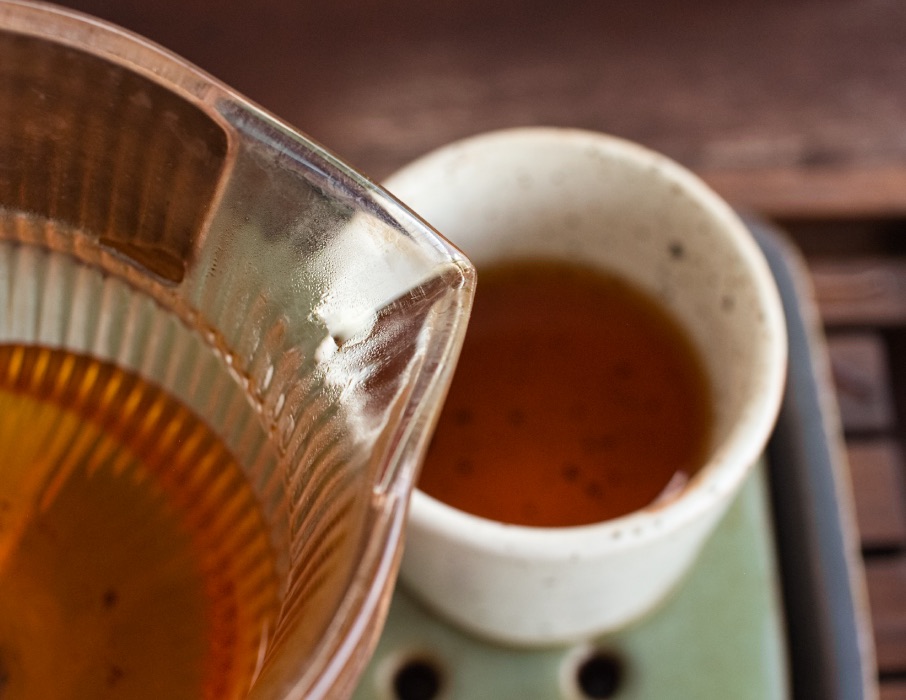
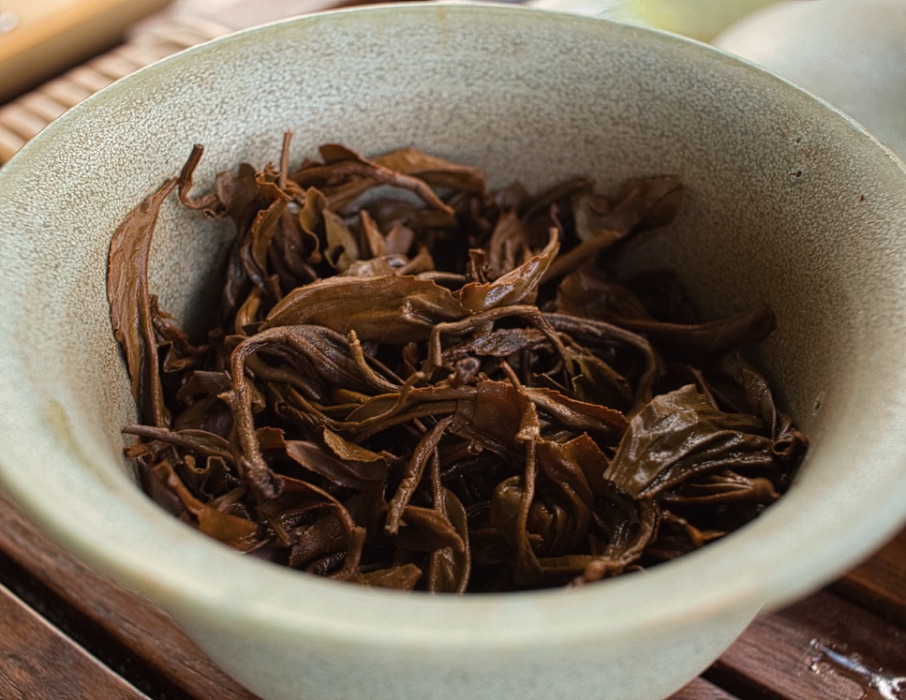
Reviews (4)
The tea is fairly bold and rich, you get very clearly chocolate and cocoa, and also some nuttiness. In the later steeps, floral notes have started to appear.
Today I tried brewing exactly 2 grams of it as an experiment in my 90ml zisha pot. Didn't expect much but it produced 6 steeps of dark-colored teasoup rich in flavour, mouthfeel and chaqi! Very smooth, powerful and aromatic. Can't think of many red teas (or any teas) that give so much with just 2g
Brief steeps (5-10 seconds) in 90 Celsius water.
Liquor is clear with a dark golden caramel in color, similar to whisky.
Taste is bold with a woody sweetness that is cacao-like, but it also has a sweet aftertaste that comes with a hint a floral-bitterness.
Mouthfeel is slightly sticky with some dryness on the palate, but no astringency.
Wet leaves are a mix of dark copper-brown and dark olive-green in colors, giving off a soft aroma of brown sugar and burnt ripen fruit.
The strength of flavor starts to mellow down by the 5th infusion, thus best to steep longer from here onwards.
As the sweetness lessens overtime, the hint of bitterness seems to be more present.
A longer (1 minute) steep gives a much deeper color tone to the liquor, no addition of bitterness but there is a minor presence of tartness that lingers and extends to the aftertaste.
I don't taste a notable floral note to this black tea apart from a hint of it in the aftertaste, though most probably taken over by the strong presence of the cacao note.
Overall, it is a bold enough black tea that I think suitable to be made iced, and dare I say perhaps even made into a sweetened iced tea.
Strong. Powerful. Dark and rich. Brews into a powerful soup that looks almost like shou at certain light. Rich and nuanced. I'd say this tea is very rewarding but requires attention to brew it well and appreciate it's flavour and effect. Overall super interesting and bold tea with lots of character. Perhaps one could compare it to Shiraz or similar full-bodied grapes in the wine world.


